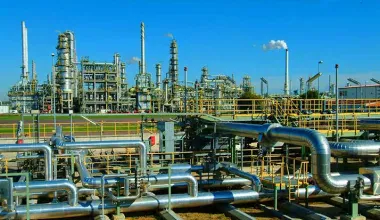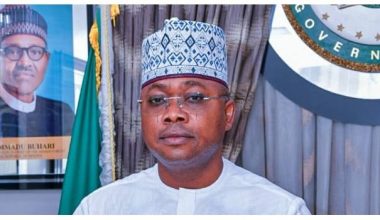Published by the Editorial Board of Guardian Newspaper
On September 3, 2022, the Federal Government announced the settlement of a long-standing contractual dispute with Global Steel Holdings over the ownership and control of Ajaokuta Steel Company and Nigerian Iron Ore Mining Company (NIOMCO). According to the Attorney General of the Federation and Minister of Justice, Mr. Abubakar Malami (AGF), the settlement significantly reduced the country’s financial obligations to 91 per cent of the original claim of $5.258 billion.
As a prelude, sometime in 2004, the President Olusegun Obasanjo’s led-administration entered into a contract with Messrs Global Steel Holdings, owners of Global Infrastructure Nigeria Limited (‘Global Steel’) for five major concessions and share purchase of Nigeria’s steel industry. However, the contract was terminated by its immediate successor in 2008 because Global Steel was accused of material breach of contract. Aggrieved by this action, Global Steel took the Federal Government to the International Chamber of Commerce, International Court of Arbitration, Paris, France (ICA).
In 2010, a committee headed by Abdullahi Yola, then Solicitor-General of the Federation, recommended that the Jonathan administration should pay a compensation of $525 million to Global Steel for revoking the concessions. However, Jonathan opted for mediation instead, to which Global Steel reportedly agreed. After due negotiations, parties agreed to sheathe the sword in 2013. However, Nigeria failed to implement the revised terms of settlement. The current government in 2016 approved the execution of the modified concession agreement which allowed Global Steel to retain NIOMCO.
In May 2020, Global Steel threatened to return to arbitration in respect of the contracts terminated in 2008. According to Malami, the said termination was contrary to the legal advice supplied by the Federal Ministry of Justice at the material time. He explained that had Nigeria waited for just 55 days to terminate, it would have terminated lawfully. This assertion is premised on the belief that Global Steel would have been unable to pay the first tranche for the Ajaokuta shares before the first anniversary of the agreement and this would have given Nigeria a right to over $26 million as liquidated damages under Clause 12 of the Agreement.
The AGF’s position is simply that the current administration, rather than following the precedent of passing the baton to the next administration, decided to take the bull by the horn by resolving the dispute. While this ‘unprecedented feat’ may appear laudable on face value, the totality of facts surrounding the case does not justify such chant of victory.
Notably, the AGF conveniently omitted other relevant facts of the case that appear inconsistent with his narrative. For instance, in May 2013, Hon. Smart Adeyemi, the then Chairman, Senate Committee on the Federal Capital Territory, disclosed that Jonathan’s administration had recovered Ajaokuta Steel from Global Steel “without any attendant financial obligation whatsoever.” In his words: “By this singular achievement, it means this government has raised the hope for industrial development in Nigeria. We got to know that Global Steel asked for $1 billion damages but the concession was illegal and unlawful.”
Four years later, Dr. Kayode Fayemi as Minister of Mines and Steel Development, also claimed that the ownership of Ajaokuta Steel Company, NIOMCO, had reverted to Nigeria, “following the resolution of a protracted legal dispute.” He further stated that the agreement was executed by Vice President Yemi Osinbajo. Accordingly, the recent announcement by the AGF without addressing the previous claims of settlement begs the question. How true were his assertions? Did Osinbajo ever execute any terms of settlement as alleged? Why is the AGF not probing how Nigeria got engulfed in this legal quagmire in the first place? What was the rationale for giving complete control and management of the country’s steel industry to a single entity? Apparently, the concessions were inimical to national interest; therefore, whose interest did they serve?
It does appear that the contract was not hastily revoked as insinuated by Malami. Rather, it was terminated upon a thorough investigation of the activities of Global Steel. The basic purpose of the agreement was for Global Steel to rehabilitate, complete, commission and operate the Ajaokuta Steel Project with a view to producing liquid steel within 12 months from the date of execution. This it failed to achieve until the contract was terminated four years later. It is equally pertinent to ask whether Global Steel paid any concession fee as mandated by the contract. If not, then the facts, coupled with other uncontroverted allegations against the company would constitute a good ground for terminating the contract.
The Attorney General needs to explain what informed the option of mediation when government could have defended the arbitration and counterclaim? Also, the claim of drastically cutting down the financial burden of Nigeria to a whopping 91% is misleading. It gives the impression that ICA awarded $5.258 billion to Global Steel which then decided to forgo 91% of the sum to Nigeria. Since the arbitration was not prosecuted to a logical conclusion, it will be speculative to conclude that Global Steel would have won. Even if the matter had gone its way, ICA has the prerogative to determine the damages which need not be the actual sum sought. Accordingly, the humongous $5.258 billion being taunted is a mere claim that never ripened to an award; hence the government could not have reduced a liability that never existed. This explains why Global Steel willingly accepted the gratuitous offer of $496 million because it was never entitled to $5.258 billion in the first place.
The pre-contract negotiations, execution of the contract, revocation, and post-contract negotiations of this ‘celebrated’ settlement smacks dishonesty, corruption and impunity on the part of Nigeria. It appears that public officers commit the country to contractual obligations, and then default to instigate litigation or arbitration that are then shoddily defended resulting in substantial damages against the government. Not surprisingly, the Federal Government is currently facing several court cases over alleged breach of contract totalling about N7.58tr. From indications, most of the contracts were negligently entered into, and thus designed to fail ab initio. This is what should pose a serious concern to Malami.
It is preposterous to assume that public contracts are drafted and executed without the input of public lawyers at least. Due diligence could have ensured protection of government’s interest and check claims of other parties before finalising any agreement. Anything short of this is professional negligence which should attract disciplinary sanctions.
It is therefore not sufficient for the AGF to acknowledge that the instant contract was not “carried out in the national interest and in compliance with the law;” he should ensure the officers responsible for needless legal battle are punished accordingly. The unpatriotic, corrupt and fraudulent act of putting the country in contractual jeopardy without considering the legal, reputational and, economic implications have remained the norm because public officials are never sanctioned for such acts. A paradigm shift of this abysmal norm is expedient. It behooves the Chief Law Officer to ensure public officers and private consultants that wilfully or negligently put the country into messy contractual situations are appropriately penalised to forestall reoccurrence.




